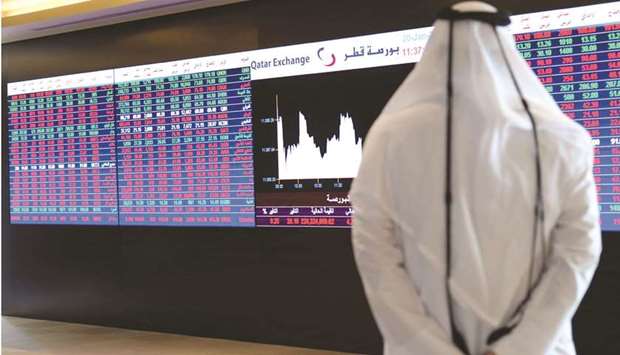Qatar's capital market awaits the advent of the REITs or real estate investment trusts, a move that would enhance the investment portfolio for the investors.
It is understood that the deliberations regarding these instruments at the highest levels have been completed and this comes after the Qatar Financial Centre Regulatory Authority had amended its rules to allow their introduction.
There was a "strategic session" between the Qatar Stock Exchange (QSE) and the Qatar Financial Market Authority (QFMA) early this February, where discussions centred on various topics. However, it could not be ascertained whether the introduction of REITs were touched upon.
"As far as we know, it is in the advanced stage" (of being introduced), an analyst with a leading investment firm told Gulf Times. Had it not been for the pandemic, it would have dotted the capital market by now, he added.
Terming that the delay in introducing the REITs is a "blessing in disguise"; he said the slowdown (owing to the lockdown and other restrictions) had impacted all sectors, particularly the retail, commercial, and hotel sectors, and would have weighed on the rental earnings received by REITs from these sectors.
However, the present situation is different as the non-energy private sectors, especially construction and real estate, are looking optimistic, supported by the widening inoculation against the Covid-19.
The strengthened confidence has been reflected in the country's purchasing managers' index and the permits issued in the real estate sector, the market sources said, adding REITs are also good investment option in the present soft (interest) rate regime.
Moreover, Qatar has seen "significant" jump in residential sales, especially in Lusail, in the recent months after the government allowed the expatriates to purchase real estate in 10 zones, a Cushman & Wakefield report had said.
The cabinet resolution No 28 of 2020 allowed real estate investment funds that will specialise in property investment in the various regions and this decision will provide an opportunity that was previously unavailable to middle and limited-income citizens to invest in the real estate sector.
Market experts are of the view that in the medium to long term; there are opportunities for capital growth from high-yield, income-producing assets, even as uncertainties exist in the short term.
These instruments (REITs) offer investors an affordable and low risk route to invest in a sector that provides long-term returns through underlying capital appreciation and dividends, the sources said.
Considering the regulatory limits on the realty exposure of the banks, they said the investment pool from REITs could help the lenders reduce their concentration risks, while at the same time the real estate sector could get much needed funds.
On the potential for the REITs, the sources highlighted that in the neighbouring Saudi market, these instruments were introduced in 2016 and at present there are 17 REITs.
A PricewaterhouseCoopers study had said REITs are underpenetrated in the Middle East, but expected to grow gradually as the real estate market in the region matures in terms of quality of and access to assets, financing, governance and regulations.
It is understood that the deliberations regarding these instruments at the highest levels have been completed and this comes after the Qatar Financial Centre Regulatory Authority had amended its rules to allow their introduction.
There was a "strategic session" between the Qatar Stock Exchange (QSE) and the Qatar Financial Market Authority (QFMA) early this February, where discussions centred on various topics. However, it could not be ascertained whether the introduction of REITs were touched upon.
"As far as we know, it is in the advanced stage" (of being introduced), an analyst with a leading investment firm told Gulf Times. Had it not been for the pandemic, it would have dotted the capital market by now, he added.
Terming that the delay in introducing the REITs is a "blessing in disguise"; he said the slowdown (owing to the lockdown and other restrictions) had impacted all sectors, particularly the retail, commercial, and hotel sectors, and would have weighed on the rental earnings received by REITs from these sectors.
However, the present situation is different as the non-energy private sectors, especially construction and real estate, are looking optimistic, supported by the widening inoculation against the Covid-19.
The strengthened confidence has been reflected in the country's purchasing managers' index and the permits issued in the real estate sector, the market sources said, adding REITs are also good investment option in the present soft (interest) rate regime.
Moreover, Qatar has seen "significant" jump in residential sales, especially in Lusail, in the recent months after the government allowed the expatriates to purchase real estate in 10 zones, a Cushman & Wakefield report had said.
The cabinet resolution No 28 of 2020 allowed real estate investment funds that will specialise in property investment in the various regions and this decision will provide an opportunity that was previously unavailable to middle and limited-income citizens to invest in the real estate sector.
Market experts are of the view that in the medium to long term; there are opportunities for capital growth from high-yield, income-producing assets, even as uncertainties exist in the short term.
These instruments (REITs) offer investors an affordable and low risk route to invest in a sector that provides long-term returns through underlying capital appreciation and dividends, the sources said.
Considering the regulatory limits on the realty exposure of the banks, they said the investment pool from REITs could help the lenders reduce their concentration risks, while at the same time the real estate sector could get much needed funds.
On the potential for the REITs, the sources highlighted that in the neighbouring Saudi market, these instruments were introduced in 2016 and at present there are 17 REITs.
A PricewaterhouseCoopers study had said REITs are underpenetrated in the Middle East, but expected to grow gradually as the real estate market in the region matures in terms of quality of and access to assets, financing, governance and regulations.




